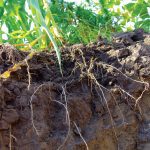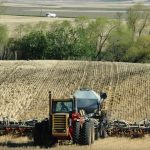
Tillage equipment

Degelman buys grain bagging, milling equipment firm Renn
Alberta equipment maker's staff to continue with Degelman

Happy trails: Award-winning soil scientist retires
Faces of Ag: After 27 years with Manitoba Agriculture, the respected soil fertility specialist has retired

Strip till: It’s new, it’s tricky and you can’t ask the neighbours for advice
On paper, strip-till is an excellent way to reduce erosion and improve soil health, but there’s a learning curve

S-CAP rollout getting mixed reviews
Newly announced funding streams target beneficial management practices for climate resilience and environment: government

College’s net positive network reels in funding
The project will receive almost $1.7 million over the next five years

Multi-million-dollar fund greenlights soil health projects
Eight projects to push soil health practices will get funding for the next five years

Weed control can’t count on knockout punch
The chemical control era is waning, so adoption of new combinations is very important

Soil acidity a growing issue
Over time a natural chemical reaction to nitrogen can cause an acidic band to develop

Excess crop residue a yield-robbing issue on many farms
It’s a problem everywhere — mismatched choppers and harrows that don’t fix the problem, agronomist says

The end of the chemical era draws near for farms
The future of weed control is going to require a more balanced approach


